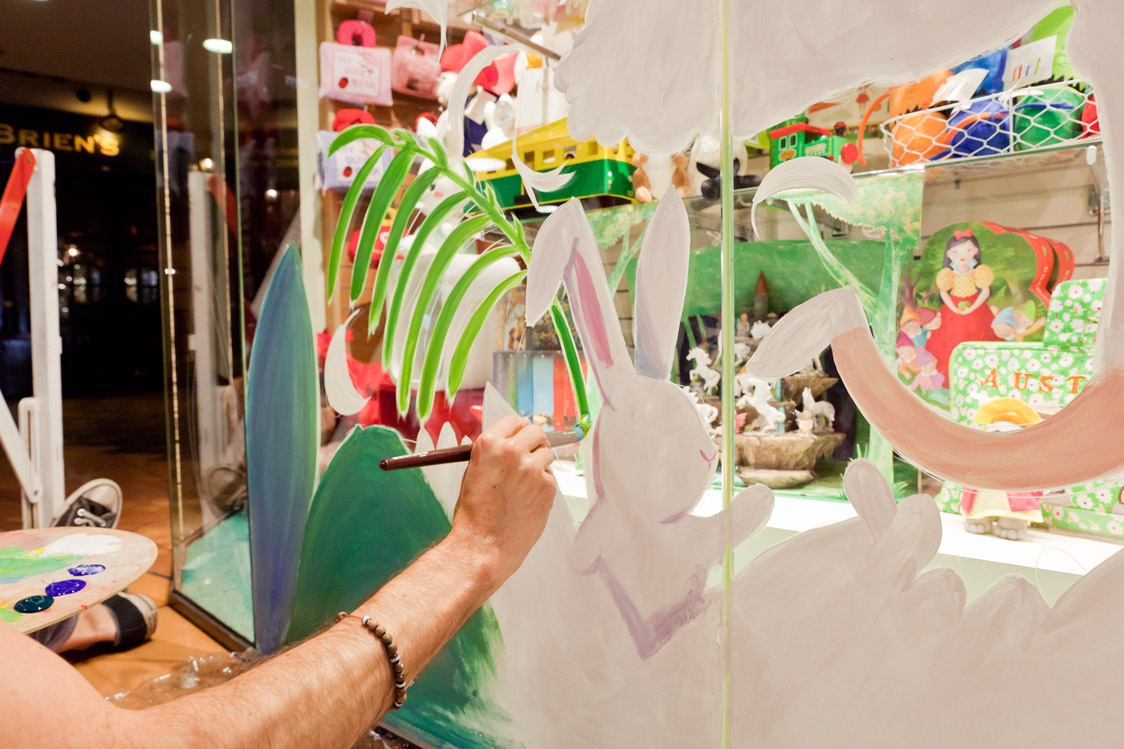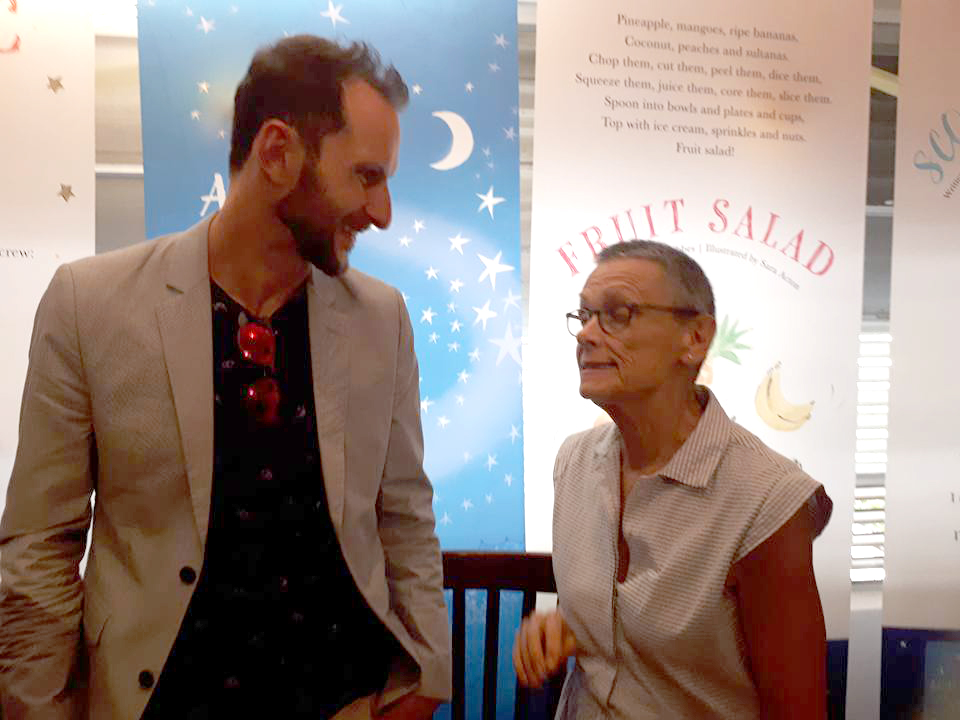I’m a self-taught professional artist. I’ve only just recently started saying that to myself, and it feels really good. I’m proud of it. I managed my way into an industry by taking a different path; one that’s far less trodden but more accessible than ever.
But.
I haven’t done ‘official’ training, and that still worries me. I often wonder what it would be like to go to Art School. It sounds romantic. And I know I’m a romantic at heart. How much would it amp up my current professional practice? I’d also be able to say, “I went to Art School.” That sounds so cool. Traditional. Legitimate. But it also looks really expensive. So I continue to ask myself, what would I learn there that I can’t use the internet for right now? Here’s what I’ve been thinking.
Art school for improving technical skills
Becoming a better draftsman can only really happen with practice. I know this intellectually. I draw a circle and it’s a bit wobbly. So, I’ll draw another; it comes out slightly better. If I draw one-thousand circles, the thousandth one will be pretty damn circular. The same principle of repetition and honing your hand-eye coordination goes for everything from circle drawing to drawing complex urban architecture or fluid figure representation with line and colour. Do I need an art school for this? Probably not. I just need to prioritise this practice in my daily life. It’s a war with Netflix, and I won’t let Netflix win.

Art school for “finding my voice”
Finding my voice. Now there’s another matter. Can art school help with this? What do I need to ‘find my voice’ anyway? Surely my voice is a combination of self-awareness and rigorous repetition. Finding my voice isn’t about technical execution, it’s about looking inward. It’s about slowing down and finding out what’s important to me. Asking myself big moral questions about my own place in the world and how those thoughts and feelings can manifest themselves in the physical form. These things seem to be at the core of an art practice. How does my bag of bones, bacteria, and brain interact with and relate to the complex ecosystem in which I live? How does the result of that exploration make me feel? What does it make me think? What do I want to tell others about? Does an art school curriculum help with that? I’m not convinced it does. I dare say that life (aka age), reserved time for introspection and critical reflection/meditation can provide a pretty well-rounded replacement. It has so far. I am where I am because of it.
Art school for community and critique
Of course, art school also offers a community. A group of peers, teachers and mentors who would provide me with feedback and insight to ‘progress’ toward finding ‘truth’ in my work. This sounds kind of useful. I value feedback more than anything, especially feedback delivered with a discerning and empathetic voice. But is the collective voice of the few who run the Art School better than the voices of 3.2 billion people that I can access for free on the internet? The law of averages suggests that 3.2 billion people would get pretty close to giving me decent third-party insight into my work.

If I’m searching for community, is it possible to find a mentor, a group of fellow artists through an organisation like SCBWI at much smaller fees and greater control than picking an art school? I’m inclined to think so because I’ve done this. My community is building. The collaboration I have with my agent, wife, peers and publishers is a rich environment of expert input. I can feel it making my work better, and it’s providing a fire underneath me to explore new and interesting ideas all the time. That’s what art school is supposed to do, right?
Art school for availability and access to ‘resources’
I find it very difficult to imagine art school being able to provide a set of reading or visual references that I can’t find online. In Melbourne, there are several weekly life drawing classes, and they’re $15 per class, and include a beverage if you’re so inclined. There’s no long-term commitment. It’s pay as you go. The last one I went to had 30 people in it. I made friends and found some critics. It was fun and useful, way cheaper, and more flexible than any art school I’ve seen who offers this as part of their service.
The ease of access to books and suggested reading lists from other artists is longer and deeper than I will ever have the opportunity to explore in my entire life. Perhaps art school offers a level of curation that would help me focus? But if I know myself well, if I understand the questions I’m looking to answer, I can direct myself to discover the answers and find a more profound truth just as quickly (if not quicker) than art school could supposedly unlock. It would indeed be cheaper. But is it $20,000 faster? I doubt it.
Art school for professional connections
Professional connections are probably another thing that art school would be good for. But then again, LinkedIn is pretty useful for that too. And besides that, I’m already working. Since my journey as a professional artist began, I’ve met so many other publishers and practising artists. There are industry events that don’t require you to be a member of any art school. You just pay to attend. And again, the fees are much smaller than any art school, and if you’re having a lean month, you don’t need to go. You can spend time drawing circles instead.
If I needed to access artists who aren’t on LinkedIn or don’t attend industry events, then they’re just an email away. Yes, many of them are too busy with their art practice to reply to my email, that’s true. But I’ve found incredible success by making sure my emails are focussed with razor-sharp questions, specific to the person I’m asking, that take no longer than 5 minutes to answer and are awash with gratitude.
With direct access to thousands of artists across the internet, even if only half of them replied, that still puts my access into the hundreds. In fact, I’ve tried this, and I’ve found so many of them to be exceedingly generous with their time, so the hit rate is still better than 50%.
So, Art School?
So I sit back having externalised my thoughts to realise that, in fact, perhaps Art School is still a tradition that I want to be a part of. As I said, it’s romantic, and there’s a history behind the brand names like VCA that still linger in my mind as having deep industry value. But in the end, when I’m clear about what I want to get out of Art School, the rational part of me can’t seem to justify it. At least, not now anyway. Maybe I’ll end up with one of those honorary degrees one day. That’d be cool.
For all of the problems that a more globalised world has created, there’s one thing that’s clear in my mind – there’s never been a better time to be a self-taught artist. In fact, there may no longer be any value in distinguishing between self-taught and, well, whatever the other one is.
